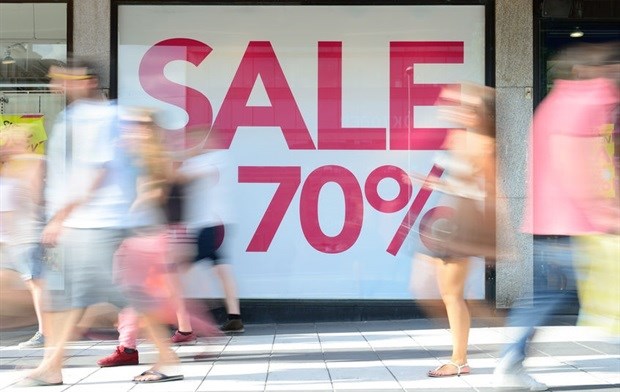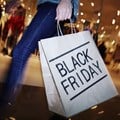Understanding Black Friday and SA consumer behaviour - Part 2

With Black Friday in our midst, are South African consumers in a better financial position now compared to 2017?
Wallet squeeze has seen South African consumers growing increasingly sensitive to prices and promotions over the past several years. However, this has also made shoppers more susceptible to large price discounts on non-essential products.
Does the local economic climate allow for South African consumers to indulge in Black Friday promotions? What is the state of household finances in this regard? There are both negative and positive considerations in this regard.
On the negative side, the most recent gross domestic product (GDP) data indicates that the South African economy was in a recession during the first half of 2018. Higher frequency data also suggests that private sector activity also deteriorated during the third quarter of the year.
South African consumers are also currently experiencing record-high fuel prices. The retail petrol price increased by a cumulative R3.32/litre during the April-October period as a result of higher internal product prices and a weaker exchange rate.
Partly as a result of higher fuel prices, headline consumer price inflation has increased from 3.8% year-on-year (y-o-y) in March to 4.9% y-o-y in August and September. Around 0.6 percentage points of this increase was associated with an increase in value-added tax (VAT) in April this year.
On a positive note, the narrowly defined unemployment rate is currently below the 14-year high levels seen in 2017. Despite the recession, total employment increased by 1.2% y-o-y during the third quarter of 2018. (Admittedly, this was driven by job growth in the informal sector.)
Consumer confidence returned to net positive territory this year after four years in net negative territory. The recovery this year is linked to the appointment of a new national president, a cut in interest rates, better rains in the drought-stricken Western Cape, significant wage increases for public servants, and a slowdown in food price inflation.
A 25 basis points cut in interest rates during March and deflation in the price of imports (excluding crude petroleum) have also benefitted consumers at the retail level. Inflation-adjusted retail sales increased by an average of 1.5% y-o-y during the third quarter. Sales of household furniture, appliances and equipment increased by a significant 9.1% y-o-y, suggesting improved consumer spending activity.
Despite these positive factors, financial planners and savings experts are warning South African consumers to not indulge in the allure of mega discounts – especially when such purchases are made on credit. According to the National Credit Regulator (NCR), four out of 10 credit active consumers are in poor standing – i.e. accounts are three or more months in arrears.
Macroeconomic evidence suggests a mixed picture for South African consumers. With both positive and negative developments over the past 12 months affecting the broader economy, it is up to individual households to evaluate their financial capabilities in the face of heavy Black Friday discounts.
Some might even suggest using available funds to invest, rather than spend. Listed retail shares generally rise on Black Friday. And unlike equity trading in major markets like the USA and Japan being limited on Black Friday, the Johannesburg Stock Exchange (JSE) has a normal trading day.
Behavioural economics helps explain consumer indulgences on Black Friday
Ever wondered why South African consumers discover their inner shopping maniac on Black Friday? According to PwC’s Strategy& behavioural economists, rational decision-making abilities are at their weakest on Black Friday, as marketers can easily leverage consumers’ cognitive make-up to get them to spend more.
Behavioural economics can help us understand how context can drive our purchasing decisions. By understanding the cognitive fallacies that can trigger financial decisions during Black Friday, behavioural economics can empower consumers to make wiser financial decisions.
The following is a list of the top behavioural traps that consumers should be wary of as they navigate the frenzy of the upcoming Black Friday sales:
Framing: Globally, retailers have generated a hype around the Black Friday phenomenon. Although Black Friday is relatively new in South Africa, local interest is at all-time highs. Framed as a once-a-year sale, we view it as an extraordinary event and associate it with extreme price cuts. However, Black Friday is arguably just another seasonal sale and its status as an exceptional event should not compel us to make purchasing decisions that we would otherwise not have made.
Scarcity and loss aversion: Panic spreads when shoppers fear they may miss out on the best sales deals. Retailers commonly spark consumers’ interest by highlighting limited stocks available for a limited time only, which raises the perceived value of these goods - after all, rarity and value are deeply intertwined. While the sense of scarcity can further trigger the need to act, we should look out whether we would truly miss out, or are captured by the rush of the chase.
Herding: We find comfort in fitting in with the actions of others, which has its roots in our own evolution. However, the actions of others can also drive us to irrational behaviour. With many South Africans wholeheartedly buying into the craze of Black Friday, we feel we should join in.
Marketers welcome the crowds on Black Friday, since crowds attract more crowds. Few shoppers feel guilty buying a 50% off toaster when the customers next to them have flat-screen TVs in their carts. When our peers are doing it, the painful experience of parting with money becomes an act of social cohesion.
The halo effect: One exceptionally good sales deal can create the perception that all of the retailer’s deals are also steals by association. This phenomenon - termed the ‘halo effect’ - means consumers will have difficulty viewing the deals on Black Friday in a nuanced way, where some may be highly discounted, but others may not. A retailer baiting with one or two exceptional discounts may not offer uniformly discounted products and consumers should weigh each purchasing decision with equal scepticism.
Confirmation bias: As consumers, we are likely to factor out any additional costs associated with our shopping trip on Black Friday, including transport and parking costs, time and effort. As we buy into the idea of Black Friday, we want to believe we are truly making savvy money decisions. Thus, we are likely to count only the per-item savings to confirm this belief, rather than considering whether going out of our way for the shopping excursion is truly worth our while.
Initial pain: It hurts to spend an initial R50, but it is much easier to spend a further R10, R20, or even another R100 after that initial purchase. The amount of pain we experience decreases with every extra rand after the initial payment, paving the way for excessive spending on things we would otherwise not purchase on Black Friday
Sunk cost fallacy: Once we have started to invest, we tend to struggle to close out investments that prove unprofitable. On Black Friday, if we have already made the initial upfront investment of getting up before sunrise, driving to the mall, finding parking and waiting in line for the store to open, we will be inclined to buy more than we initially came for. No matter the upfront investment, it remains helpful to consider at each point whether the purchase is worthwhile and whether it brings us closer to our longer-term financial objectives.
The Black Friday sales frenzy can trigger our deepest emotional and cognitive responses and can lead us down a path of unnecessary spending. However, consumers can use insights from behavioural economics to empower them to make decisions that align with their individual financial goals. By pausing to consider the factors above and our true consumption needs, we are better prepared to make the most of what Black Friday has to offer.


